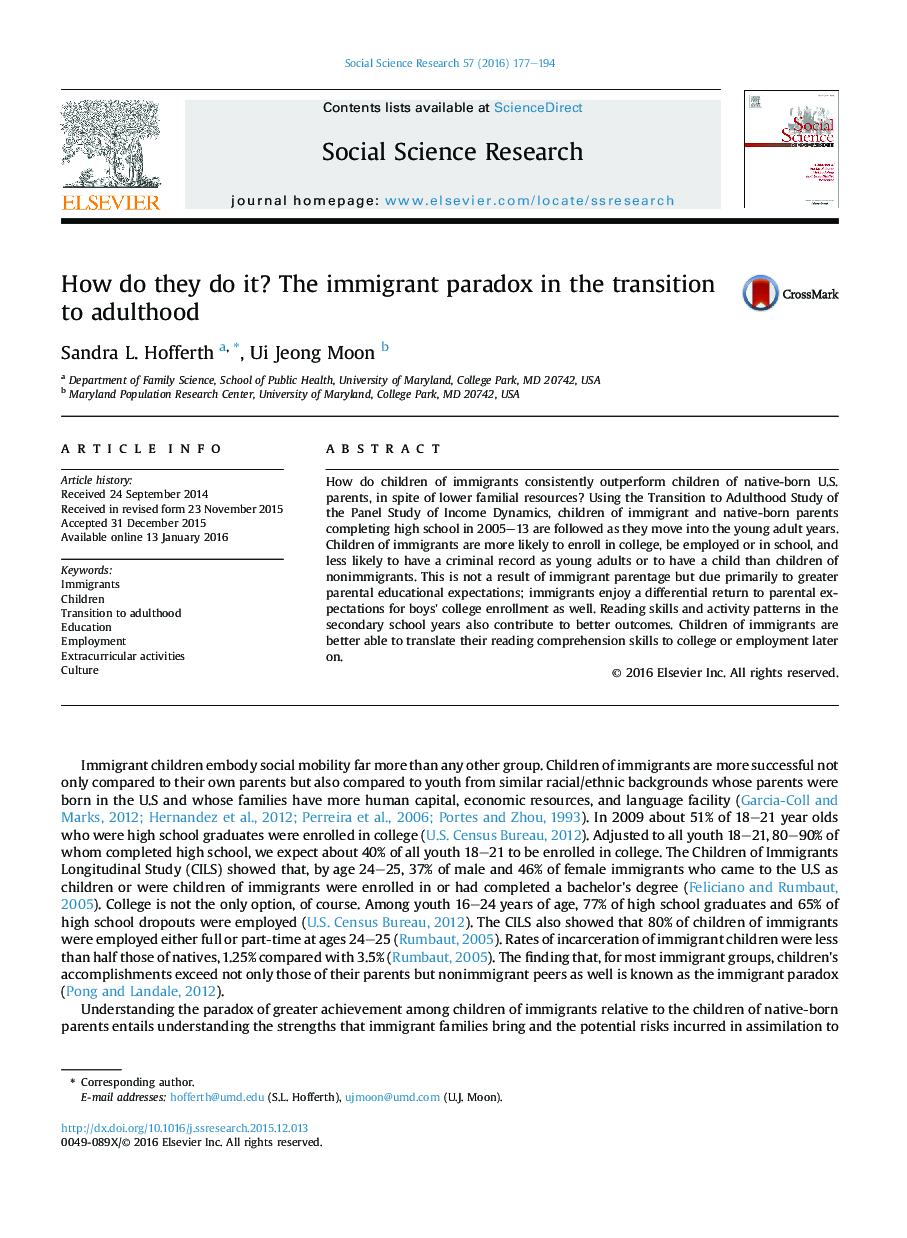| Article ID | Journal | Published Year | Pages | File Type |
|---|---|---|---|---|
| 955644 | Social Science Research | 2016 | 18 Pages |
•Immigrant youth participate more in college or work than nonimmigrant youth.•Immigrant youth are less likely to have a criminal record than nonimmigrant youth.•College enrollment is linked to higher parental educational expectations.•Immigrants' college and work benefit more from reading skills than nonimmigrants'.•Activity engagement as a teen is linked to a higher chance of working or studying.
How do children of immigrants consistently outperform children of native-born U.S. parents, in spite of lower familial resources? Using the Transition to Adulthood Study of the Panel Study of Income Dynamics, children of immigrant and native-born parents completing high school in 2005–13 are followed as they move into the young adult years. Children of immigrants are more likely to enroll in college, be employed or in school, and less likely to have a criminal record as young adults or to have a child than children of nonimmigrants. This is not a result of immigrant parentage but due primarily to greater parental educational expectations; immigrants enjoy a differential return to parental expectations for boys' college enrollment as well. Reading skills and activity patterns in the secondary school years also contribute to better outcomes. Children of immigrants are better able to translate their reading comprehension skills to college or employment later on.
